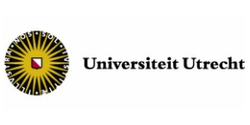PhD Position on Transforming Streetscapes for Healthier Cities
Updated: 17 Apr 2025
Do you want to do research to help create healthier urban environments? Do you want to leverage cutting-edge technology and innovative research to find out how our cities promote health? Join us as a PhD candidate!
Your job
While high-quality environments support good health, environmental stressors still contribute to an estimated 630,000 deaths annually in Europe. Traditional city-scale interventions such as air pollution and noise regulations fail to address the micro-scale variations in urban exposure that shape people’s daily health behaviors. Some local interventions, like creating parks, have shown benefits, yet large-scale implementation is often hindered by spatial constraints. What if we could harness the untapped potential of streetscapes to (re)design impactful, feasible, and widely accepted interventions that directly enhance public health?
In this PhD project, you will explore how street-level built and natural environmental changes influence people’s health and health behaviour. Using a novel combination of deep learning, street view imagery, and epidemiological methods, we aim to identify the most effective urban exposure modifications. This research will generate actionable insights to guide policymakers in designing healthier urban spaces.
You will be teaching in courses of Human Geography and Spatial Planning for about 10% of your time.
Has this sparked your interest? We invite you to apply for our fully funded, full-time, four-year PhD position within the Exposome-NL Gravitation programme.
Requirements:
You are a motivated and proactive colleague who:
- has a Master’s degree in Environmental Epidemiology, Quantitative Geography, Spatial/Urban Data Science, or a related discipline (e.g., quantitative social sciences) by the start of the position;
- has proven experience in working with geographic data and quantitative methods (ideally in the health context);
- is a team player who can conduct academic research at the highest level;
- is fluent in English (C1 level) and has excellent communication skills;
- is well-versed in statistical programming languages, such as R or Python;
- (ideally) has gained some experience in writing scientific publications.
Salary Benefits:
- A position for one year, with an extension to a total of four years upon successful assessment in the first year;
- a working week of 38 hours and a gross monthly salary between €2,901 and €3,707 (salary scale P under the Collective Labour Agreement for Dutch Universities (CAO NU));
- 8% holiday pay and 8.3% year-end bonus;
- a pension scheme, partially paid parental leave and flexible terms of employment based on the CAO NU.
In addition to the terms of employment laid down in the CAO NU, Utrecht University has a number of schemes and facilities of its own for employees. This includes schemes facilitating professional development, leave schemes and schemes for sports and cultural activities, as well as discounts on software and other IT products. We also offer access to additional employee benefits through our Terms of Employment Options Model. In this way, we encourage our employees to continue to invest in their growth. For more information, please visit Working at Utrecht University.
36 - 40 hours per week
Princetonlaan 8a

